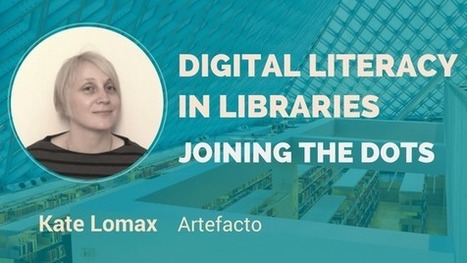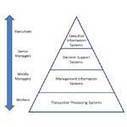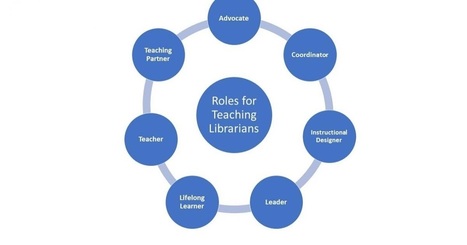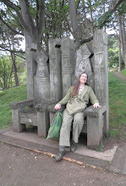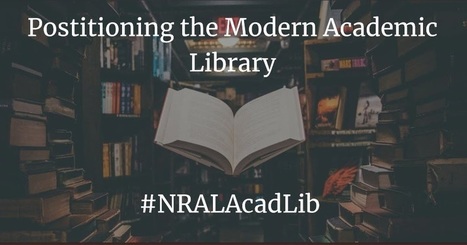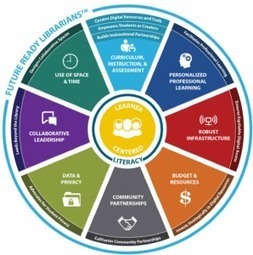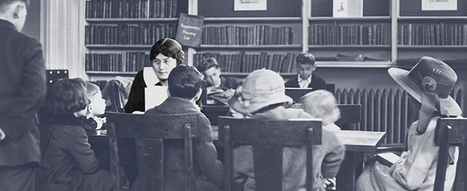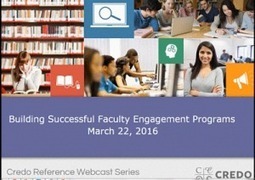 Your new post is loading...
 Your new post is loading...
Librarians in educational settings try to provide not only physical access but also intellectual access to recorded information. Because digital resources constitute a significant portion of this information, librarians need to pay explicit attention to the effective retrieval and use of these assets. More specifically, users should have the ability to understand both the information itself and the medium through which it is conveyed. These competencies are known collectively as information and communication technology (ICT) literacy.
Adapting to change requires reacting positively to change – even creating change – and ultimately ensuring that it works to a special library’s advantage. Equally important, special librarians themselves can thrive, both personally and professionally, when they become change agents …. think “resilience,” not resistance.
Special librarians achieve sustainability by understanding that end user requirements and forces at work (e.g. new technologies, globalization and a mobile workforce) all demand change—and by reacting positively. Libraries must cope with staff shortages, budget cuts, outdated technology, competition from unexpected sources, and even negative stereotypes.
The changing landscape of scholarly communication has caused something of a chain reaction in academic libraries with increasing numbers setting up dedicated research support departments to offer advice and training to their users. Librarians are excited to see new job opportunities emerging in these departments which on paper seem like an excellent fit for their skills. But in reality are librarians the ones actually taking the roles in these departments or are they being beaten at their own game? Research, 'Where did they come from? The educational background of people working in scholarly communication', suggests that many of those appointed to these new roles within scholarly communication departments come to the library having completed a PhD and that for many their only experience of the library comes as a user rather than a staff member.
Every time I visit a library (or even a library website) I can’t help but notice the digital workshops they offer, a side effect of being a former ICT librarian who now does innovation workshops for libraries as part of Artefacto. It’s impressive that, despite rounds of funding cuts and other obstacles, most libraries still manage to offer digital literacy services to their communities. Whether in the form of introductory classes, drop-in sessions and, increased privacy and online security awareness events.
Library science, or library information science (LIS), might conjure up hermits in musty, dark rooms, cataloging index cards into towering file cabinets. But, that image is incorrect today, as library science now pertains to digital cataloging, social networking and a changing history in archival science. This list of 50 excellent library science blogs are worth reading for any contemporary library science professional.
Last month a publication called 24/7 Wall St. published an article titled “America’s 25 Dying Industries.” Using data from the Bureau of Labor Statistics, the article analyzed how employment levels in various sectors changed between 2007 and 2016.
The article, which was recently republished by USA Today, Yahoo Finance and many others, ranked libraries and archives as one of the fastest-declining industries in the U.S., second only to video tape and disc rental. The publication of the article prompted a strong response from librarians, who questioned the validity of the analysis.
We’ve been hearing a lot about requests for embedded librarians surging in the past year, especially since the term “fake news” entered the popular lexicon last fall. Because collaboration between librarians and faculty is a desired outcome in so many conversations about information literacy (IL) today, we wanted to explore best practices for this strategy.
"The purpose of the roles is to conceptualize and describe the broad nature and variety of the work that teaching librarians undertake as well as the related characteristics which enable librarians to thrive within those roles. These seven roles, which can and do overlap, are intended to help librarians situate our individual work experiences within the broader work of academic libraries and within academic communities, as well as suggest creative new areas for expansion."
On Monday I gave a talk on MOOCs, Information Literacy and the role of the librarian at Edinburgh university on. The abstract for this was "Sheila Webber will start by briefly outlining some general characteristics of MOOCs and her own experience with them. She will go on to identify types of MOOC and the implications for MOOC pedagogy. As part of this discussion she will note some findings from an investigation into the value of learning analytics for MOOC educators (undertaken by Naomi Colhoun at Sheffield University in summer 2014). In the final part of her presentation she will reflect on the various roles that have been, or could be, adopted by librarians."
|
Students at our public, urban community college were experiencing difficulties finding correct, consistent answers to their questions about navigating college processes, information students needed to succeed in school. These difficulties were fueled not only by our students’ backgrounds—they are often the first generation in their family to attend college, may require additional academic preparation, or lack support for their higher education dreams—but also by the siloed information environment prevalent in academia. When our college president realized the extent of student challenges in this area, she looked to the college’s librarians, campus experts in knowledge organization and provision, for direction with a knowledge management initiative to support our students.
Knowledge management can be broadly thought of as the ways institutional knowledge is gathered, organized, and made available in coordinated ways that are useful to the organization. Along with Student Affairs, the Library co-led the development of a collegewide knowledge base, the goal of which was to provide students and other users, including college faculty and staff, with the correct answer to common questions. The Library hired a part-time metadata librarian originally just for this project, but that librarian was later appointed full-time faculty while continuing to manage daily operation of the knowledge base.
Now in its fifth year, the collaborative Ask LaGuardia knowledge base has become an institution at the college. Usage has grown. Librarians involved in knowledge
Academic librarians cannot escape the implications of the knowledge economy and the pervasion of technology which effects everything that we do. Similarly, we must be prepared to teach our students how to cope in this knowledge society and how to develop the necessary information and digital literacy skills to be productive members of society in a digital environment. This article explores the first eighteen months of our experience as digital curriculum librarians in a large project at the University of South Australia (UniSA), UniSA Online. We have taken this opportunity to critically reflect on being embedded librarians within such a strategic and unique project. We examine the key cultural, pedagogical and technological challenges we have faced in delivering resources, support and services to the project team.
Guest Post by Michelle Breen , Head of Information Services at the Glucksman Library at the University of Limerick . Things hav
As schools seek to become Future Ready, it is necessary to identify and cultivate leadership beyond district and building leaders. School librarians lead, teach, and support the Future Ready goals of their school and district in a variety of ways through their professional practice, programs and spaces. If properly prepared and supported, school librarians are well-positioned to be at the leading edge of the digital transformation of learning.
Growing up, I liked to imagine what it would be like to work in a library. What little I knew about them was what I’d gleaned from movies and TV because my conservative parents never took us to any and only let me read books they purchased from the Bible Book Store. I didn’t know any librarians in real life—outside of the elderly woman who ran our tiny school media center—but I understood librarians were smart and savvy. Cool and collected. They were everything my rowdy, boundary-busting, literature-hating family was not. I envisioned a sweet future for myself sitting behind an elaborately carved wooden desk, surrounded by towering stacks of leather-bound books. I’d read for hours in total silence, vanilla and almond perfuming the air. Pages wafting in a gentle breeze. Nobody around to bother me. With librarianship, I’d finally have solitude.
Reading Universities may censor student reading in the Sunday Times at the weekend, I was surprised about the furore over enhancing catalogue records with relevant metadata in order to accurately describe texts held in academic library collections.
In the most recent installment of our #ReferenceStrategy webinar series, four librarians shared strategies they've used to build successful faculty engagement programs on their campuses. Rebecca Donlan outlined a program Florida Gulf Coast University created to enhance their culture of inquiry "from composition to capstone." Horry Georgetown Technical College's Nicole Romyak and Chris Williams explained concrete examples of initiatives they've taken to reach out to faculty on their campus and the results such efforts have yielded. Jennifer Hill from Excelsior College outlined how her institution's course development teams have benefitted faculty, librarians, and students.
Many librarians view themselves as outsiders by virtue of their roles in the academy and, too often, this outsiderness is conflated with marginalization.
|
 Your new post is loading...
Your new post is loading...
 Your new post is loading...
Your new post is loading...









